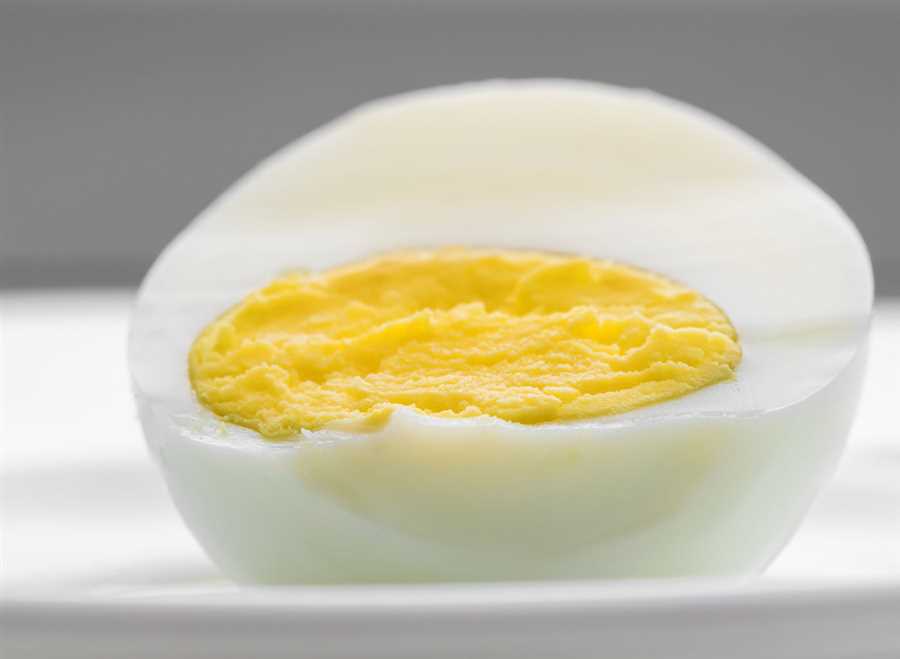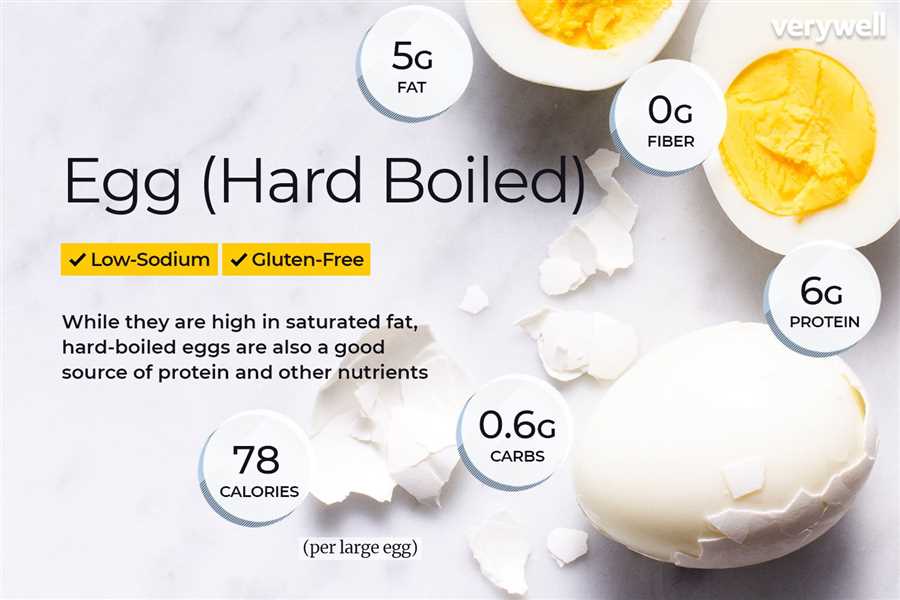Eggs are a common and versatile food that is consumed in many parts of the world. They are rich in nutrients and are often included in a balanced diet. However, there is a common belief that eggs lose protein when they are cooked, which may impact their nutritional value.
When you cook an egg, the heat causes the proteins within it to denature and coagulate. This is what gives the egg its solid texture. While the cooking process may alter the structure of the proteins, it does not significantly affect their overall nutritional content. In fact, studies have shown that the protein content of eggs remains relatively stable even after cooking.
It is worth noting that there are different methods of cooking eggs, such as boiling, frying, or scrambling, and each method may affect the nutritional profile of the egg to some extent. However, these effects are minimal and do not lead to a significant loss of protein.
Overall, eggs are an excellent source of protein and cooking them does not result in a substantial loss of this important nutrient. So, whether you prefer your eggs boiled, fried, or scrambled, you can still enjoy their nutritional benefits without worrying about protein loss.
Are Cooked Eggs Less Protein-Rich?
One common concern when cooking eggs is whether they lose protein during the cooking process. Eggs are known for being a complete protein source, meaning they contain all the essential amino acids our bodies need.
While it is true that some types of cooking can cause minimal protein loss, the impact is generally insignificant. In fact, cooking eggs can make the protein more easily digestible and increase its bioavailability.
Protein denaturation occurs when heat is applied to proteins, such as those found in eggs. However, this denaturation process does not lead to a significant loss of protein content. The overall protein content remains relatively stable even after cooking.
In some cases, cooking eggs may actually increase the protein content that our bodies can absorb. The heat from cooking can cause the proteins to unfold and form new structures that are more easily digested. This can enhance the bioavailability of the protein, allowing our bodies to absorb and utilize it more efficiently.
Additionally, cooking eggs eliminates the risk of salmonella contamination, making them safer to consume. Raw or undercooked eggs can contain harmful bacteria, which can lead to foodborne illnesses.
It is worth mentioning that different cooking methods can affect the protein content differently. For example, hard-boiled eggs may retain more protein compared to scrambled eggs. However, the difference is minimal, and the overall protein content remains relatively stable.
In conclusion, cooked eggs are still a rich source of protein. While some minimal protein loss may occur during cooking, the overall impact on the protein content is insignificant. In fact, cooking eggs can even increase the protein’s digestibility and bioavailability. So, feel free to enjoy your favorite cooked egg dishes without worrying about losing out on protein.
Does Cooking Eggs Reduce Their Protein Content?
Eggs are well-known for being an excellent source of protein. However, there has been some debate about whether cooking eggs can reduce their protein content. In order to understand the impact of cooking on the protein levels in eggs, it is important to examine the scientific evidence.
A study conducted by the Department of Food Science at Cornell University found that cooking eggs can indeed have an effect on their protein content. The researchers discovered that when eggs are subjected to high temperatures during the cooking process, some of the proteins in the egg white undergo structural changes and denaturation. This can lead to a decrease in the overall protein content of the cooked egg.
The extent to which protein loss occurs during cooking depends on several factors, including the cooking method and duration. Boiling eggs, for example, can result in a higher protein loss compared to other methods such as poaching or frying. Extended cooking times can also contribute to a greater loss of protein.
It is important to note, however, that while cooking eggs can cause protein loss, the overall nutritional value of the cooked eggs remains high. Eggs are still a rich source of essential amino acids and other important nutrients such as vitamins and minerals.
In fact, some studies have suggested that the bioavailability of protein in cooked eggs may be higher compared to raw eggs. The heat from cooking can improve the digestibility and absorption of the proteins, making them more readily available for the body to use.
In conclusion, cooking eggs can lead to a reduction in their protein content, especially if subjected to high temperatures and extended cooking times. However, the cooked eggs still retain a significant amount of protein and provide valuable nutrients to the body. So go ahead and enjoy your cooked eggs without worrying too much about losing out on protein!
| Cooking Method | Protein Loss |
|---|---|
| Boiling | Higher |
| Poaching | Lower |
| Frying | Lower |
Understanding the Effects of Cooking on Egg Protein
Eggs are a popular source of protein and are consumed in various forms. However, there is some concern about the loss of protein during the cooking process. In this article, we will explore the effects of cooking on egg protein and provide a deeper understanding of how different cooking methods may impact its nutritional value.
The Structure of Egg Protein
Egg protein is composed of various amino acids, which are the building blocks of proteins. The two main types of protein found in eggs are albumin and globulin. These proteins are present in the egg white and are responsible for its gel-like consistency.
Albumin, the more abundant protein, is soluble in water and denatures easily when exposed to heat. Globulin, on the other hand, is more heat-stable and plays a role in the egg white’s ability to foam and thicken.
The Impact of Cooking Methods
Cooking eggs denatures the proteins, altering their structure and overall nutritional value. The extent of denaturation depends on the cooking method used.
When eggs are exposed to heat, the proteins unfold and coagulate, resulting in the solidification of the egg white. This coagulation process can cause a loss of protein, as the proteins may bind tightly together and become less readily available for digestion.
Hard-boiling eggs, for example, involves submerging them in boiling water. The high heat causes the proteins to denature and coagulate, resulting in a solid and fully cooked egg white. It is likely that some loss of protein occurs during this process.
Similarly, when eggs are fried, the high heat causes the proteins to denature and coagulate. While the extent of denaturation may vary depending on the cooking time and temperature, it is likely that some protein loss occurs during frying.
Minimizing Protein Loss

To minimize protein loss during cooking, it is important to consider the cooking method and duration. Using lower cooking temperatures and shorter cooking times can help preserve more of the egg’s protein content. Additionally, avoiding excessive heat exposure and stirring gently during cooking can also help retain more of the proteins.
It is worth noting that while some protein loss may occur during cooking, eggs still remain a significant source of protein. They provide essential amino acids and contribute to a balanced diet.
Overall, cooking eggs can result in protein loss, but the extent of loss depends on the cooking method used. By understanding the effects of cooking on egg protein, individuals can make informed choices about their cooking methods and optimize the nutritional value of their eggs.
Protein Loss in Cooked Eggs: Myth or Reality?
As the age-old saying goes, eggs are a great source of protein. However, a common question that arises is whether the protein content in eggs is affected by the cooking process. Some believe that cooking eggs leads to a significant loss of protein, while others argue that this is nothing more than a myth. In this article, we will explore the truth behind protein loss in cooked eggs.
Understanding Protein Composition in Eggs

Before delving into the impact of cooking on protein content, it is essential to understand the protein composition of eggs. Eggs are considered a complete protein source, meaning they contain all nine essential amino acids that our bodies need to function properly. The protein in eggs is primarily found in the egg white (albumen), with a smaller amount present in the yolk.
The protein in eggs is known for its high biological value, which indicates that it provides a good balance of essential amino acids that humans require. Protein is crucial for various bodily functions, including muscle growth, tissue repair, and enzyme production.
Effects of Cooking on Protein Loss
When eggs are subjected to heat during cooking, such as frying, boiling, or scrambling, some protein loss may occur. The high temperatures can denature the proteins, causing them to unfold and lose their original structure. This denaturation can lead to a change in the appearance and texture of the egg, making it more solid and less runny.
While there may be a minor loss of protein during cooking, it is important to note that the overall nutritional value of eggs remains largely unchanged. The protein that is lost during cooking is relatively small compared to the total protein content in the egg. Therefore, it is safe to say that the protein loss in cooked eggs is more of a reality than a myth, but its impact on the nutritional value is minimal.
Maximizing Protein Retention
If you are concerned about minimizing protein loss in cooked eggs, there are a few steps you can take. Firstly, avoid overcooking eggs as prolonged exposure to high heat can further contribute to protein denaturation. Secondly, opt for gentler cooking methods, such as poaching or soft-boiling, which involve lower temperatures and shorter cooking times. Lastly, consuming the whole egg, including the yolk, can provide a more balanced nutritional profile.
In conclusion, while some protein loss does occur during the cooking process, it is not significant enough to drastically impact the overall protein content of eggs. So, feel free to enjoy your scrambled, fried, or boiled eggs without worrying too much about losing out on protein!
Questions and answers
Do eggs lose protein when cooked?
When eggs are cooked, they may lose a small amount of protein due to denaturation. However, the overall protein content remains relatively stable.
Is it true that cooking eggs reduces their protein content?
Cooking eggs can cause a small amount of protein loss due to denaturation, but the impact is minimal. Eggs still remain a good source of protein even after being cooked.
Does protein in eggs get destroyed when cooked?
Cooking eggs can denature some of the proteins, resulting in a small loss of protein content. However, the nutritional value and protein quality of eggs remain intact even after cooking.
What happens to the protein in eggs when they are cooked?
When eggs are cooked, the heat causes the proteins to denature and unfold, resulting in some loss of protein content. However, eggs still retain a significant amount of protein and are considered a valuable protein source.
How much protein is lost when eggs are cooked?
When eggs are cooked, they may experience a minimal loss of protein due to denaturation. The exact amount lost can vary, but it is generally not significant enough to dramatically impact the overall protein content of the eggs.
Do eggs lose protein when cooked?
Yes, eggs do lose some protein when cooked. However, the amount of protein lost is relatively small and varies depending on how the eggs are cooked.
How much protein is lost when eggs are cooked?
The amount of protein lost when eggs are cooked can vary, but generally it is not a significant amount. On average, the protein content of cooked eggs is about 10-15% lower than that of raw eggs.






